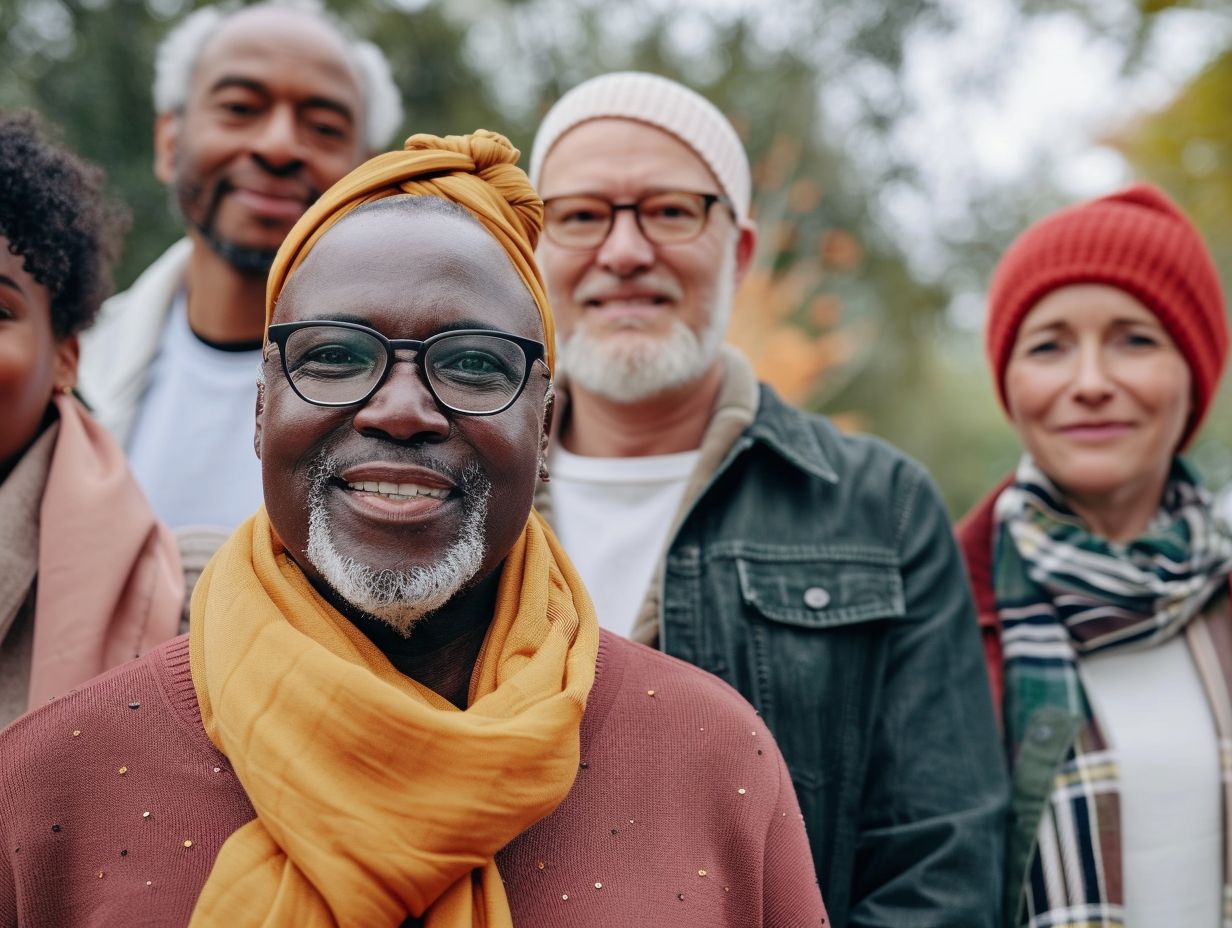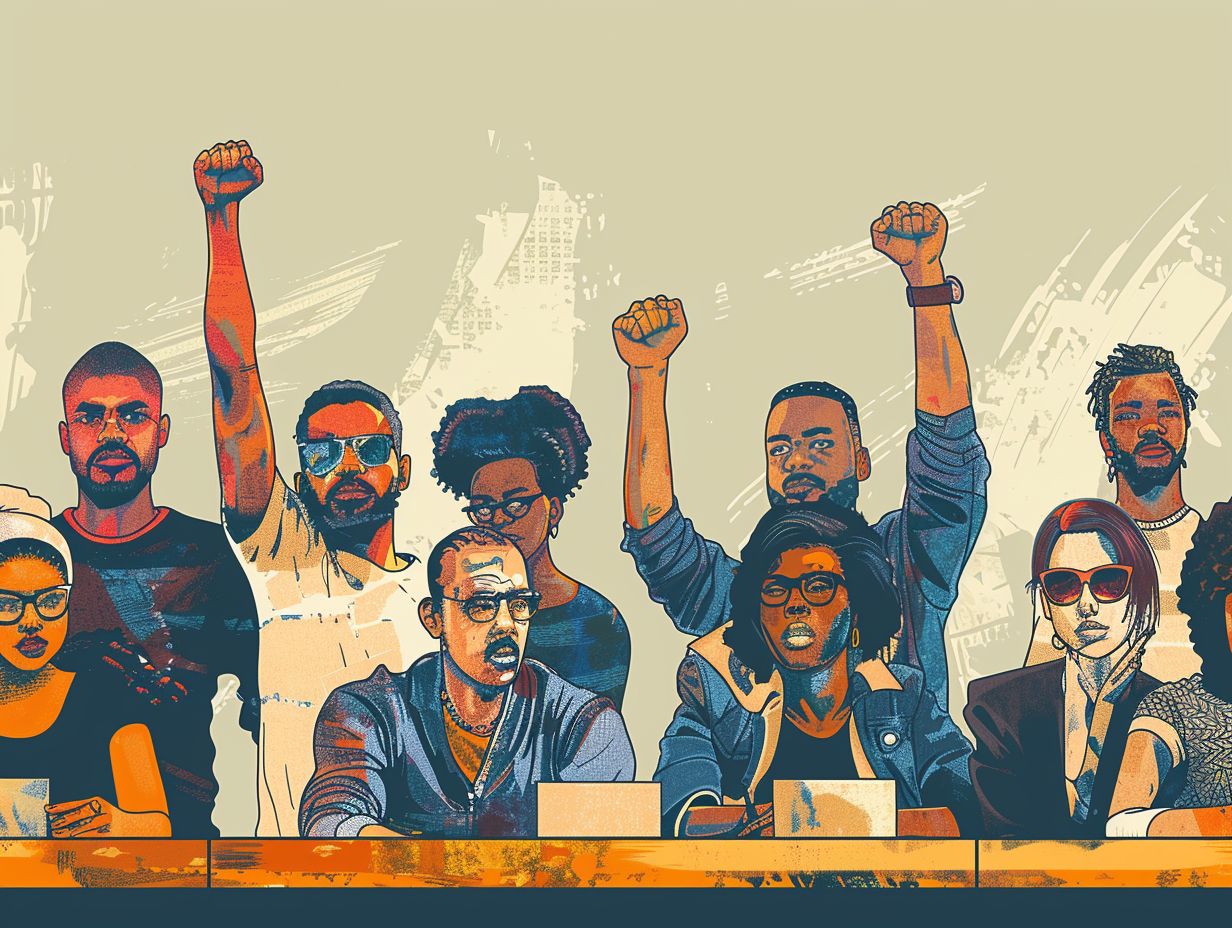Influence on local government in Florida plays a crucial role in shaping the community, representing interests, and enhancing the quality of life for residents.
This article explores the importance of influencing local government, ways to actively engage in the process, successful examples in Florida, common challenges faced, and strategies to overcome them.
From attending city council meetings to utilizing social media, discover how you can make a difference in your local government and create positive change in your community.
Key Takeaways:
- Engaging with local government has a direct impact on the community, representation of interests, and quality of life.
- Ways to influence local government in Florida include attending meetings, contacting officials, joining organizations, participating in hearings, and voting.
- Successful examples of local government influence in Florida include bike lanes in Miami Beach, affordable housing in Orlando, and recycling programs in Tampa.
How Can You Influence Local Government in Florida?
In Florida, residents have the opportunity to engage with local government through various forms of participation and communication, allowing their voices to be considered in the decision-making process. This can include attending city council meetings and participating in local elections, providing different avenues for involvement and influence on local governance.
1. Attend City Council Meetings
Participating in city council meetings is an important way for residents to engage with local government and offer input on matters affecting their community.
Residents can usually access information about meeting schedules and agendas from the city’s official website or by reaching out to the city clerk’s office. At these meetings, individuals are typically allowed to speak to the council during designated public comment periods.
It is advisable for residents to plan brief statements summarizing their opinions or issues, given that time is often constrained. Through active involvement in these meetings, community members can directly influence local policies and choices that have an impact on their daily experiences.
2. Contact Local Officials
Reaching out to local officials directly is a useful method for expressing concerns and impacting decisions at the local government level. Whether one opts to send an email, place a phone call, or arrange an in-person meeting, clear communication plays a crucial role when interacting with local officials.
By presenting well-researched arguments backed by data and facts, individuals can enhance the likelihood of their opinions being acknowledged and effectively influence the decision-making process. It is important to maintain a respectful and professional demeanor in all engagements to encourage constructive dialogue and establish a positive rapport with local representatives.
3. Join Community Organizations
Participating in community organizations is a significant way to engage in local government and collaboratively influence decisions that impact the community.
These groups act as a voice for residents who may lack the resources or platform to advocate for their needs on their own. By bringing together individuals with shared objectives and concerns, community organizations can enhance their influence and drive positive changes across various areas of local governance.
For instance, neighborhood associations often play a crucial role in tackling issues like public safety, infrastructure development, and environmental sustainability. Through grassroots initiatives and community involvement, these groups can effectively shape policies and impact decision-making processes at the local level.
4. Participate in Public Hearings
Participating in public hearings gives residents the opportunity to provide feedback on proposed local government decisions, ensuring that their voices are considered in the policymaking process.
By sharing their perspectives, concerns, and suggestions during public hearings, residents play an essential role in influencing the decisions that directly impact their communities. Constructive feedback from residents can offer valuable insights to local government officials, assisting them in making well-informed choices that prioritize the public’s interests.
To actively engage in public hearings, residents have the option to attend in-person sessions, submit written comments, or participate in virtual meetings, providing a range of accessible methods to be involved in the decision-making process.
5. Vote in Local Elections
Participating in local elections is a direct way for residents to have an impact on decision-making processes within their local government.
Involvement in local elections allows individuals to have a say in the policies and initiatives that affect their communities directly. By voting, individuals play a role in selecting mayors, city council members, school board representatives, and other key officials who make decisions on issues such as education, public safety, infrastructure, and local taxes.
To ensure eligibility for participation, registering to vote is essential. This registration process can typically be completed online, by mail, or in person at designated locations. Once registered, locating the polling place for one’s precinct is crucial; most areas provide this information via official voting websites or voter information materials.
What Are Some Examples of Successful Local Government Influence in Florida?
Various instances of effective local government influence in Florida demonstrate how community participation and advocacy can result in significant changes, ranging from environmental policies to infrastructure enhancements.
1. Implementation of Bike Lanes in Miami Beach
The implementation of bike lanes in Miami Beach is a notable case where community advocacy played a role in influencing local government decisions to improve transportation infrastructure.
Local residents and organizations worked diligently to increase awareness about the advantages of bike lanes, highlighting benefits such as enhanced safety for cyclists and reduced traffic congestion. This grassroots movement attracted the attention of city officials, resulting in collaborative efforts to plan, finance, and execute the bike lane initiative.
The active participation of the community in public meetings and discussions was significant in shaping the design and placement of the bike lanes, ensuring they met the requirements of cyclists and seamlessly integrated with the existing infrastructure.
2. Creation of Affordable Housing Programs in Orlando
The implementation of affordable housing programs in Orlando highlights the collaboration between local government and the community to address housing issues.
One of the primary strategies used in Orlando to combat the challenge of affordable housing is the introduction of inclusionary zoning policies. These policies mandate developers to designate a specific percentage of new housing units as affordable housing. This initiative has been pivotal in increasing the availability of affordable homes in the city.
Public-private partnerships have been essential in financing and executing affordable housing projects, utilizing both government funding and private sector knowledge to develop sustainable solutions. Additionally, the contribution from local communities has been crucial in ensuring that the housing programs align with the unique needs and preferences of the residents.
3. Establishment of Recycling Programs in Tampa
The implementation of recycling programs in Tampa demonstrates how the combined efforts of local government and the community can result in significant environmental advantages.
One pivotal measure in establishing these recycling programs involved the cooperation between local environmental groups, government entities, and engaged citizens.
Community leaders coordinated awareness campaigns to instruct residents on the significance of recycling and supplied tools for effective waste separation. Furthermore, the local government implemented incentives and guidelines to promote the engagement of businesses and households in recycling projects.
Consequently, Tampa has witnessed a decrease in landfill waste, lower levels of air and water pollution, and a favorable transition towards becoming a more sustainable and environmentally conscious city.
What Are Some Common Challenges in Influencing Local Government?
Influencing local government often presents challenges, such as a lack of awareness or interest, limited resources, and potential resistance from officials. These obstacles can impede community efforts to bring about change.
1. Lack of Awareness or Interest
One common challenge in influencing local government is the lack of awareness or interest among residents, which can result in low public participation and engagement.
When residents are not fully informed about local governance issues or do not feel personally connected to decision-making processes, it hinders the effectiveness of local government influence. To address this barrier, proactive steps can be taken to increase public awareness and engagement.
This can include implementing educational campaigns to inform residents about the role and impact of local government, holding community forums or town hall meetings to promote dialogue between citizens and officials, and leveraging social media platforms to disseminate information and encourage participation.
By actively working to enhance public awareness and interest in local governance, communities can foster a more engaged and informed citizenry, leading to more effective local government influence.
2. Limited Resources
Resource limitations, whether financial, human, or informational, pose a significant challenge for community organizations and individuals aiming to influence local government decisions.
For example, insufficient funding may hinder community groups in organizing impactful outreach campaigns or hiring experienced advocates.
Inadequate staffing levels could result in important issues not being effectively communicated to elected officials or valuable research on a proposed policy not being conducted. A lack of timely and accurate information may hinder efforts to monitor government actions and participate in decision-making processes.
To address these resource constraints, organizations can consider forming collaborations with other groups, utilizing technology for cost-effective communication, and engaging volunteer networks to broaden their reach and impact.
3. Resistance from Officials
Resistance from local officials can serve as a significant obstacle in influencing decision-making processes and bringing about change within local government.
This resistance may arise from various factors, such as concerns about losing control, conflicting priorities, or a lack of understanding regarding community needs. When local officials resist community influence, it can hinder progress on critical issues and result in frustration among residents.
To tackle this challenge, it is essential to promote constructive dialogue and collaboration between community members and officials. Establishing relationships built on trust and mutual respect can help dismantle barriers and create opportunities for substantial engagement.
By actively listening to each other’s perspectives and collaborating towards common objectives, both parties can overcome resistance and strive towards positive change.
How Can You Overcome These Challenges?
Addressing obstacles in influencing local government entails:
- educating and mobilizing community members
- collaborating with other organizations
- utilizing social media and communication platforms
- maintaining persistence and engagement in advocacy efforts
1. Educate and Mobilize Community Members
Educating and mobilizing community members is crucial for increasing awareness and participation in local government processes.
By providing workshops on topics such as civic engagement and local governance, community members can acquire valuable knowledge and skills to actively contribute to decision-making processes. Information campaigns can help distribute important updates and promote involvement in public initiatives.
Hosting community meetings offers a platform for residents to express their concerns, exchange ideas, and cooperate on solutions for the improvement of the neighborhood. Through these methods, individuals are give the power toed to make informed decisions and play a meaningful role in shaping the future of their community.
2. Collaborate with Other Organizations
Working together with other organizations can enhance efforts to influence local government and achieve common goals within the community. By teaming up, community organizations can combine their resources, expertise, and networks to have a greater impact on issues affecting residents.
For instance, a collaboration between a local environmental group and a youth organization could focus on advocating for more green spaces in the city.
To create effective coalitions, it is important to establish clear communication channels, define roles and responsibilities, and uphold transparency. Successful partnerships often entail shared values, mutual support, and a unified approach when expressing concerns or proposals to local government officials.
3. Utilize Social Media and Other Communication Platforms
Using social media and other communication platforms is an effective method to reach a wider audience and influence local government by increasing awareness and garnering support.
Interacting with the community through digital channels enables real-time engagement and feedback, allowing advocates to customize their message to connect with specific audiences. Successful advocacy campaigns, like the #BlackLivesMatter movement, utilized social media to amplify their message, initiate conversations, and bring about significant changes.
To effectively make use of these platforms, advocates should concentrate on developing engaging content, interacting with their followers, and incorporating multimedia elements to capture attention. Utilizing data analytics can offer valuable insights to enhance campaign strategies and optimize outreach efforts for optimal impact.
4. Stay Persistent and Engaged
It is essential to maintain persistence and engagement when facing challenges and seeking to influence local government decisions. This ongoing involvement serves to strengthen relationships with key stakeholders and showcases a lasting dedication to the community.
A useful approach for sustaining momentum in advocacy endeavors is to set precise objectives and periodically assess progress towards achieving them. By staying abreast of local matters and participating in meetings, individuals can stay informed and offer significant input on crucial determinations.
Partnering with individuals and organizations who share similar goals can enhance the effect of advocacy efforts and foster a supportive network for continuous involvement in local government procedures.
Frequently Asked Questions
How can I make my voice heard in local government decisions in Florida?
One way to influence local government in Florida is to attend city council meetings and voice your opinions during the public comment period. You can also reach out to your local elected officials through email or phone to express your concerns or ideas.
Are there any specific laws or regulations I should be aware of when trying to influence local government in Florida?
Yes, Florida has a strong Sunshine Law which mandates that government meetings and records are open to the public. This means you have the right to access information and attend meetings to stay informed and involved in local government decisions.
What are some effective ways to get my community involved in local government decisions?
Organizing a community forum or creating a petition to show support for a certain issue are effective ways to get your community involved in local government decisions. You can also use social media to raise awareness and rally support for a cause.
How can I stay informed about local government decisions and processes in Florida?
You can stay informed by regularly checking your city’s website for meeting agendas and minutes, signing up for email or text alerts, and following local news sources. Attending community meetings and joining local interest groups can also help keep you informed.
Can I influence local government decisions even if I am not a resident of Florida?
While Florida residents have a stronger influence on local government decisions, non-residents can still make their voices heard. You can write letters or emails to local officials, use social media to raise awareness, and support local organizations that align with your beliefs.
What are some strategies for effectively communicating my ideas or concerns to local government officials in Florida?
When communicating with local government officials, it is important to be respectful, concise, and provide supporting evidence for your ideas or concerns. You can also consider forming a coalition with others who share your views to have a stronger impact.



























Rate this article:
Average rating 0 / 5. Vote count: 0
No votes so far! Be the first to rate this post.
No Comments yet!